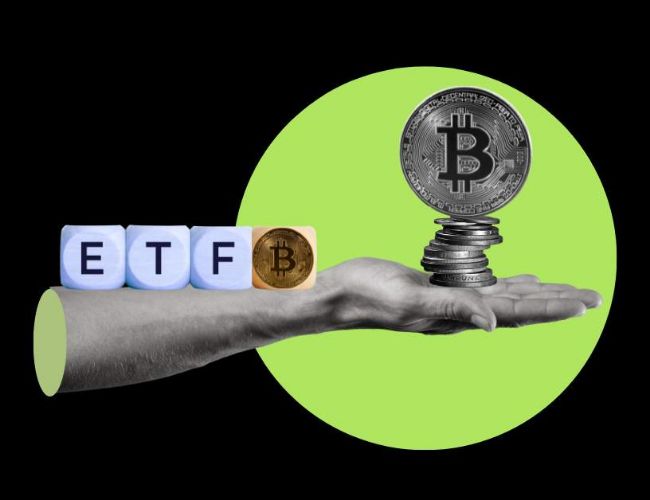Data suggests that most of the demand for spot bitcoin ETFs has so far come from retail investors.
The average trade size of BlackRock's iShares Bitcoin Fund (IBIT), according to one source, is 326 shares, or around $13,000, suggesting that those trades were made by nonprofessional investors.
Billions of dollars have flowed into spot bitcoin ($BTC) exchange-traded funds since they were launched in January and sentiment around the cryptocurrency has simultaneously improved – a case where reality appears to have matched the hype.
This number wouldn’t be so shocking if that money was coming from big institutions, but, according to experts, it’s not. It’s coming from ordinary people, deemed in the financial world as retail investors.
“There's probably some advisers in there, but, largely speaking, based on the size of the trades, it looks like retail is definitely a big factor,” said Bloomberg Intelligence senior ETF analyst Eric Balchunas.
According to his data, the iShares Bitcoin Trust (IBIT) – issued by the world's largest asset manager, BlackRock – is seeing an average of 250,000 trades in a day. The average trade size is 326 shares, or around $13,000, suggesting to Balchunas that those trades were made by nonprofessional investors.
BlackRock declined to comment. But a person familiar with the matter said that, while BlackRock is seeing buying interest from all types of customers, ranging from retail to institutional, most of the money flow seems driven by retail investors.
In the stock market, large transactions are routinely split up into tiny chunks for more efficient processing, so a 326-share average trade side isn't necessarily a sign amateurs with thin wallets are driving the action. But Balchunas said that issuers have confirmed to him that demand is driven by the retail crowd.
One issuer CoinDesk spoke with agrees. VanEck brought the VanEck Bitcoin Trust (HODL) to market in January alongside the other nine spot bitcoin ETFs.
“I would say, broadly, it’s a lot of retail,” said Kyle DaCruz, director of digital assets products at VanEck. But there’s a lack of transparency into who invests in ETFs in the early days of launch as many of the trades are executed by authorized participants, market makers and brokers, who all invest on behalf of an entity, he added.
ETFs make it easier for individual investors to allocate money into bitcoin and without holding the actual asset themselves. ETFs can be traded through financial advisers or brokerage accounts, paving the way for non-crypto investors to easily put some of their savings into the cryptocurrency.
BlackRock’s IBIT, which has attracted more than $14 billion in assets in just two months, is by far the winner among the bitcoin ETFs. This is no surprise, said Balchunas.
“BlackRock is everything to everybody,” he said. “It’s high liquidity and low fee, which means that it could appeal to institutions or financial advisors. That is a powerful combination," he added. "And then you put the BlackRock brand on it. … Look out.”
Nine of the 10 bitcoin ETFs have seen new money added since they began trading on Jan. 11. Grayscale's GBTC, which has existed for years as a closed-end fund but converted into an ETF in January, has seen an outflow. But overall these products have had an outstanding performance, Balchunas said.
Normally, funds with fees as low as the ones on most of the bitcoin ETFs would need about $80 million to $100 million in assets to break even. The smallest one, WisdomTree’s Bitcoin Fund (BTCW), has roughly $70 million.
“We’d call that a legit hit,” said Balchunus. “IBIT just makes it look like [BTCW is] getting no love, but it’s really good.”
 coindesk.com
coindesk.com
